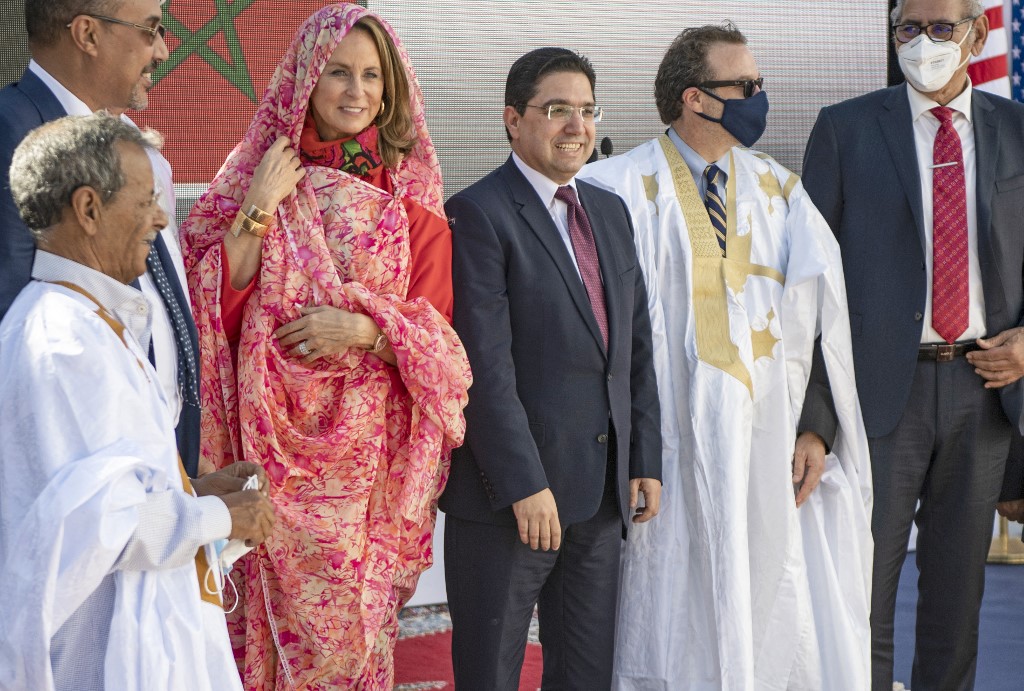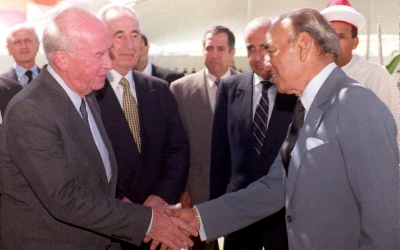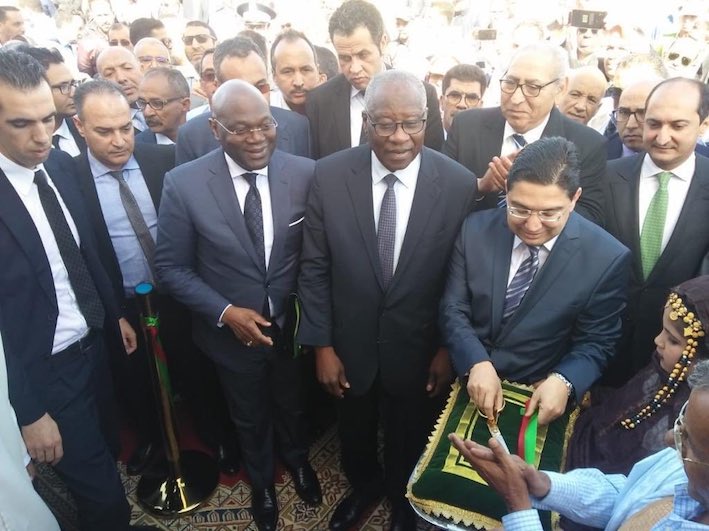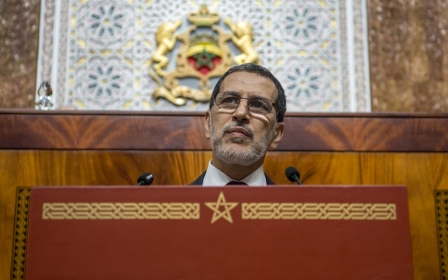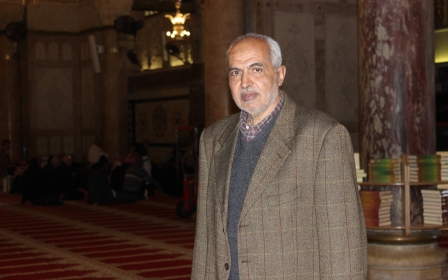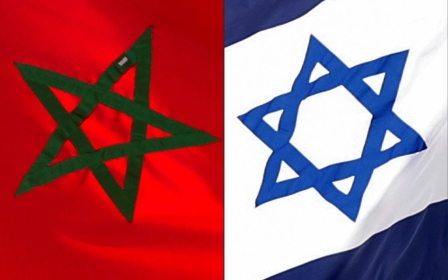Morocco: The 'deal of the century' and the misfortunes of Mohammed VI
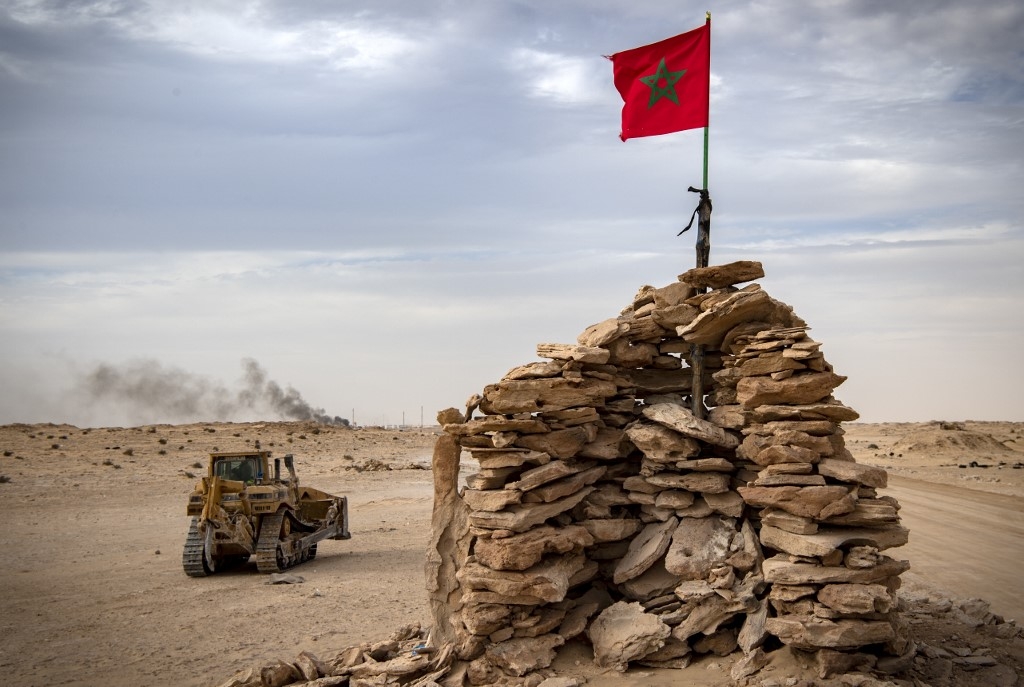
The UN Security Council in April sounded the death knell for Morocco’s diplomatic efforts in the Western Sahara. The US made no mention of former President Donald Trump’s recognition late last year of Morocco’s sovereignty in the region.
Despite Moroccan authorities still touting a “historic victory”, the US urged the region’s opposing factions to “avoid escalation”, to work with UN peacekeepers and to step up efforts to appoint a new UN envoy in order to relaunch the stalled political process as soon as possible.
With Morocco shaken by political and economic crises, its hasty backing of Trump’s “deal of the century” could cost the kingdom dearly - and the regime of Mohammed VI could be in for a rude awakening.
Morocco's hasty endorsement of normalisation with Israel was given just as Trump's 'deal of the century' was starting to fall apart
It all began last December, when Trump issued a presidential proclamation recognising Morocco’s sovereignty over the Western Sahara, a former Spanish colony disputed by the Moroccan regime and the Algerian-backed Polisario Front. In exchange, Rabat announced that it would “normalise” relations with Israel, not that any such endorsement was needed. Though diplomatic relations with Morocco had officially broken off after the outbreak of the Second Intifada in 2000, Tel Aviv had long maintained back channels to Rabat.
While Mohammed VI, as chairman of the al-Quds Committee of the Organisation of Islamic Cooperation, had previously said he would not put the Palestinian cause in the balance, he ultimately gave in to the monstrous pressure, exerted in particular by Trump, on the heads of Arab states to adhere to the deal. Following the UAE, Bahrain and Sudan, Morocco hastily signed on to a risky agreement.
'Two-state solution' forgotten?
With the US-Israel-Morocco agreement now a few months old, it’s time for a checkup. A cool-headed examination shows that the benefits of “normalising” relations with Israel, especially in terms of trade and security, are liable to hide serious symptoms that could ultimately threaten the future of Morocco’s foreign policy.
For starters, Morocco’s hasty endorsement of normalisation with Israel was given just as Trump’s “deal of the century” was starting to fall apart. Announced in January 2020, his new “peace plan” for the Middle East was immediately rejected by Palestinian factions (both Fatah and Hamas), and for good reason.
The agreement, which tilts strongly in Israel’s favour, presents an outright dismissal of the two-state solution, with a US president - for the first time ever - recognising Israeli sovereignty over settlements in the occupied West Bank, in violation of international law. The plan also challenges the status quo with regards to al-Aqsa Mosque complex, giving Israel control over the holy site.
In light of all this, Mohammed VI’s declaration to his Palestinian counterpart, Palestinian Authority President Mahmoud Abbas, on 10 December 2020 was all but unfathomable. Citing a commitment to a two-state solution that preserved Jerusalem’s special status, he noted that “Morocco’s work to consolidate its Moroccanness will never be, neither today nor in the future, at the expense of the Palestinian people’s struggle for their legitimate rights”.
Once relations with Israel are fully restored, however, the chairman of the al-Quds Committee will no doubt find it difficult to prevent Israel from seizing Jerusalem’s holy sites.
The professed religious authority of the Moroccan monarch has thus been seriously undermined by the new agreement. After the escalation at al-Aqsa mosque in early May, Mohammed VI was conspicuously silent; it was the ruling Justice and Development Party (PJD), rather, who condemned Israeli authorities’ attacks on Palestinians at the holy site.
Pressure from Netanyahu
Morocco, which has always maintained political and economic back channels with Israel, did not sign the Abraham Accords as part of a security alignment against expanding Iranian influence - hence the ambivalence over the normalisation deal, and the pressure from Israeli Prime Minister Benjamin Netanyahu, who wants to see Mohammed VI move quickly on the full restoration of diplomatic relations.
The Moroccan regime’s strategy presumably consists of keeping its official engagements with Israel to a minimum for fear of stoking further discontent in the streets, where Mohammed VI is accused to a certain extent of having sacrificed the Palestinian people on the altar of Israeli interests.
Given this controversy, Israel will no doubt intensify its pressure on Morocco in an effort to neutralise the regime, nominally preventing it from influencing the course of potential negotiations on the Israeli-Palestinian conflict, whose resolution is no longer considered a prerequisite for Arab countries to establish diplomatic relations with Israel.
Morocco today seems to have lost out to the UAE and Bahrain as the preferred negotiating partner of the US and Israel in the Israeli-Palestinian conflict. The kingdom’s long-maintained secret ties with Israel, and its special interest in the Moroccan Jewish community, no longer guarantee it a special place at the US-Israeli negotiating table.
In other words, pragmatic action and cool-headed calculations have replaced historic alliances. Under Trump’s “deal of the century,” the Alawite monarchy, much like the kingdom of Jordan, finds itself relegated to a minor role.
Upsetting the regional power balance
Trump’s decision to recognise Morocco’s sovereignty over the Western Sahara was aimed at upsetting the regional power balance. For Morocco, the strategic play couldn’t have been more timely. The kingdom is eager to strengthen its presence in the Western Sahara, especially after it launched a military operation last November to oust Sahrawi fighters in the southern buffer zone of Guerguerat.
Backed by Algeria, the Polisario fighters have been thrust onto the international stage, hoping to assert their right to self-determination and to counter Morocco’s offer of “extended autonomy”. Amid the manoeuvrings of Morocco and its allies, Algeria’s generals have worked to influence the international community to prevent Morocco from consolidating its leadership status in the region.
As for Morocco, the regime has welcomed the opening of several new African consulates in Dakhla and Laayoune.
But Algeria’s generals won’t be put off, remaining determined to curb Morocco’s influence in the Western Sahara and beyond, particularly in sub-Saharan Africa. Algeria has pressed Mauritania to cut diplomatic relations with the kingdom, leading to the signing in April of a strategic memorandum of understanding to strengthen Algerian-Mauritanian economic and security cooperation.
Ultimately, Algeria hopes to contribute to Morocco’s regional isolation at a time when relations between Rabat and Madrid have soured, owing in particular to the closure of Morocco’s borders with Ceuta and Melilla. Algeria has simultaneously been intervening on the international stage on behalf of the Polisario Front.
European intervention
The Moroccan regime finds itself today at an impasse. With four-party negotiations between Morocco, the Polisario Front, Algeria and Mauritania at a standstill since the resignation of the last UN envoy, Horst Kohler, in May 2019, the stage seems set for military conflict, especially with renewed hostilities among the various protagonists. In early April, the Polisario’s police chief, Addah al-Bendir, was killed by a Moroccan drone strike.
Given the present chaos, Europe should seize the occasion for a diplomatic intervention, working to speed up the appointment of a new UN envoy and relaunching regional negotiations. France could play a pivotal role in preventing the escalation of further violence in the Western Sahara, where the rise of extremism and the presence of terrorist groups, especially in the Sahel, are of particular concern.
In the face of Morocco's incessant diplomatic jockeying, Europe appears more than willing to resume the status quo that has long defined the Saharan conflict
French President Emmanuel Macron, true to his “diplomatic pragmatism”, could help to maintain the fragile regional power balance. France’s cautious stance in the Western Sahara seems to be part of a carefully calibrated diplomatic strategy aimed at easing regional tensions. A pragmatic political solution brokered by Paris could strengthen its role as a leading European power, in the face of American hegemony.
As for Israel, Netanyahu remains true to his aggressive foreign policy strategy, which is aimed at provoking Arab heads of state into quickly normalising relations with Israel by dangling financial, technological and security assistance to authoritarian states shaken by military and economic crises and the resurgence of post-Arab Spring popular protests.
Fully aware of the risks of implosion facing Arab countries today, Netanyahu has even floated the idea of a non-aggression pact between Israel and Morocco, not to mention the establishment of direct flights between the two countries and an open invitation to the Moroccan monarch to visit Israel. The king has yet to accept.
But in the face of Morocco’s incessant diplomatic jockeying, Europe appears more than willing to resume the status quo that has long defined the Saharan conflict. As such, the Moroccan regime would seem to have no choice but to give in to Israel’s relentless diplomatic pressure.
The views expressed in this article belong to the author and do not necessarily reflect the editorial policy of Middle East Eye.
This article has been translated and condensed from the MEE French edition.
Middle East Eye propose une couverture et une analyse indépendantes et incomparables du Moyen-Orient, de l’Afrique du Nord et d’autres régions du monde. Pour en savoir plus sur la reprise de ce contenu et les frais qui s’appliquent, veuillez remplir ce formulaire [en anglais]. Pour en savoir plus sur MEE, cliquez ici [en anglais].



